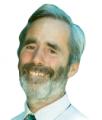
THIS is the story of how I tried to go green and ended up as an environmental hypocrite.
As a child, I was appalled by the death toll on Britain’s roads. There were more than 6,000 fatalities each year and many times that number were maimed or seriously injured.
Cars also caused appalling pollution and if I went for a bike ride lasting any time, my face would be covered with black marks.
Public transport was dying as people became more prosperous and bought cars. There was a trickle of train closures in the 1950s which became a flood in the 1960s following the Beeching report.
The countryside was being ruined by motorways and dual carriageways. Ugly flyovers and underpasses wrecked historic towns.
It seemed to me that things could only get worse unless the nation made a real effort to cut down on cars but no one agreed with me.
I determined when I was 17 and old enough to start motoring that I would not own or drive a car.
And I never have, although it has caused great complications for my friends and relations.
I sometimes wonder what sort of driver I would have been. To find out, I took a driving test on a Lambretta I’d bought for ten pounds, passed, and immediately abandoned the scooter.
Having ridden a bike on roads since I was four, I found it the quickest and most convenient way of getting around towns and often it was faster too.
I was always able to cycle to work and as a reporter rode bikes to cover stories.
Keeping a tally, I covered several thousand miles annually and eventually claimed that I had cycled the equivalent of going around the world.
The millionaire Mike Holland, who owns the Engineerium in Hove, was amused by this and asked if the bike could be displayed when the museum reopened.
Sadly this has not happened yet but I took the battered steed there a few years ago and it may still be awaiting rusty stardom.
Going around the countryside was not always so easy. One Sunday when I was a freelance reporter, I was asked by a national newspaper to interview a man in Bolney who was not on the phone. Bolney does not have a station and there were no Sunday buses.
I cycled there over the Downs and was told he had gone to Lower Beeding. I carried on to that village but he was out.
My wife and I acquired a tandem which was useful for getting round town and was worth taking to dinner parties as the riders could not be breathalysed.
But she disliked it and bought an old car. I then had to decide where to use that or not. I did ride in it quite often but continued to cycle on my own.
For a long time I had a bike trailer and once used it to take bricks weighing 420 pounds to the recycling depot. I did the weekly shopping by bike.
I also moved house by bike and the only item that could not be taken on the trailer was a piano. The whole street turned out to watch.
Transport largely governed where we lived. We chose a home close to an excellent bus service and within easy reach of two railway stations.
There were at least two years when the only trips I made by car were with Argus photographers.
Over the years we made friends with many people in rural Sussex where there were hardly any buses.
I had to choose whether to lose my friends or my principles. I chose my principles.
Some friends gently chided me for that but the general view was that I was quite mad anyway. We had no friends who did not drive.
In 70 years of bike riding I never had an accident until in 2017 when I broke both hips in quick succession.
This meant I could no longer ride a bike or walk far and relied on public transport or the generosity of friends.
And the transport world had changed a lot since I was 17. I’d thought the death rate on the roads would soar but in fact it declined.
Pollution is still a problem but is less visible. Traffic management has allowed cars to keep moving, just, despite a huge rise in numbers.
Cars, once a luxury, are now considered essential even by the impoverished but there is a change.
I now know plenty of people, particularly in Brighton, who don’t own or drive cars.
They are less pious about it than I was but more effective in quietly persuading others to do the same.
All this may not matter much at the moment when we are dealing with a virus crisis. But I do regret becoming such a hypocrite over my (non) driving ambition.



Comments: Our rules
We want our comments to be a lively and valuable part of our community - a place where readers can debate and engage with the most important local issues. The ability to comment on our stories is a privilege, not a right, however, and that privilege may be withdrawn if it is abused or misused.
Please report any comments that break our rules.
Read the rules hereLast Updated:
Report this comment Cancel